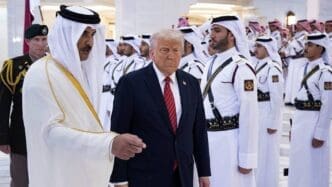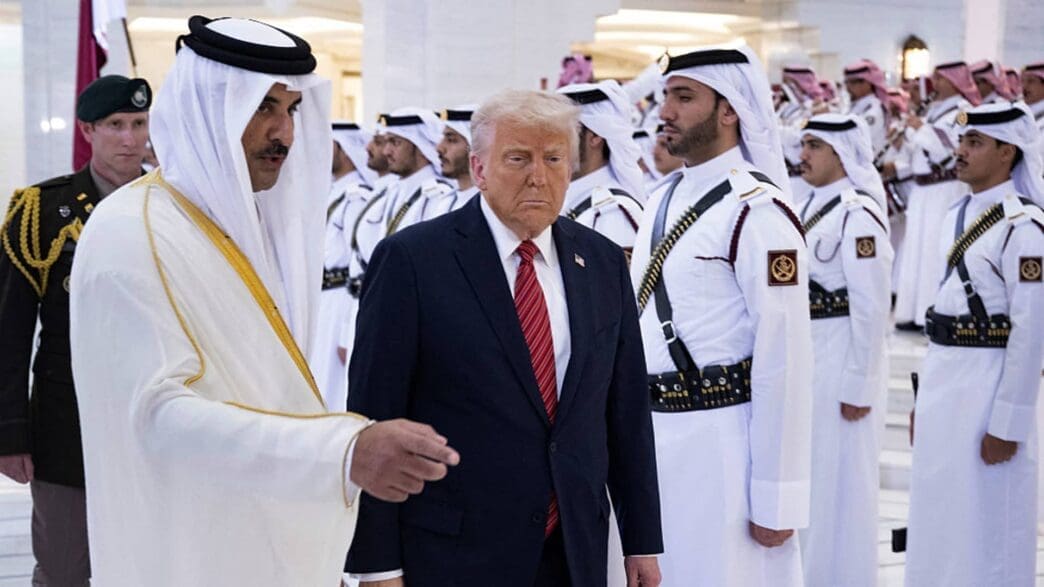During President Donald Trump’s visit to the Gulf region, the Arab Gulf states demonstrated unparalleled hospitality and strategic alignment with the United States. In a show of grandeur, Saudi Arabia, Qatar, and the United Arab Emirates (UAE) hosted the U.S. leader with elaborate ceremonies and significant economic commitments.
Upon arrival in Riyadh, Saudi Crown Prince Mohammed bin Salman personally greeted President Trump, defying typical royal protocol with a tarmac reception. The president’s journey in Qatar was marked by an impressive motorcade featuring red Tesla cybertrucks and equestrian escorts, culminating in a majestic camel parade outside Qatar’s presidential office, the Amiri Diwan. In Abu Dhabi, the UAE’s Mohammed bin Zayed presented Trump with the prestigious Order of Zayed Award, reflecting the high regard in which he is held in the region.
The visit underscored a strategic intent by the Gulf nations to fortify ties with the U.S., as evidenced by ambitious economic agreements. Qatar and the U.S. announced a $1.2 trillion economic exchange, while Saudi Arabia committed to a $600 billion investment in the U.S. Additionally, the UAE pledged a decade-long $1.4 trillion investment framework. These commitments, though met with skepticism due to fluctuating oil prices, signal the Gulf states’ determination to prioritize their relationship with the United States over other regions.
The economic engagements include Qatar’s significant purchase of 210 Boeing jets and Saudi Arabia’s $142 billion arms deal, marking the largest arms agreement in history. In Abu Dhabi, discussions included potential technological advancements, such as the UAE importing Nvidia’s advanced H100 chips to bolster its AI capabilities.
Observers noted that while some viewed the Gulf states’ efforts as competing for Trump’s favor, the broader perspective indicates a strategic alignment focused on securing economic and technological partnerships with the U.S. The visit highlighted the Gulf’s preference for a business-oriented U.S. administration, with leaders from the region emphasizing personal diplomacy and mutual economic interests.
In Saudi Arabia, the U.S.-Saudi Investment Summit brought together top American CEOs, including representatives from Tesla, Nvidia, and BlackRock, illustrating the depth of commercial ties. The summit further cemented the personal rapport between Trump and Saudi leadership, contrasting with the more strained interactions during the previous U.S. administration.
As the Gulf nations continue to seek a pivotal role in the evolving global order, their substantial economic pledges are viewed as strategic signals of ambition. Even if only half of these commitments materialize, they represent a significant step in solidifying the Gulf’s influence and ensuring its position as a key partner of the United States in business, military, and technology sectors.














